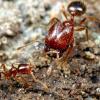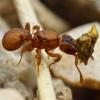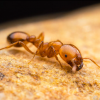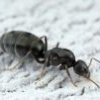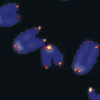We go to RIFA Queens and workers, where they landed in U.S.A’s South-East, and when they landed, they saw a new piece of healthy land they can live on. So, they kept multiplying in that new land where they were noticeable. Then, the U.S. deployed massive pesticide spray all over the land, killing the NATIVE ants, livestock, and plants. This legitimately killed all of RIFA’s rivals in the area, and they just kept multiplying, they NEVER knew of any true rivals. What about their overpowering methods, and stinging, and just being hardy ants in general. That is because THEY HAD TO be like that, they grew up in the jungles of South America, where you can be enslaved in some cases, overran mostly, and destroyed. There were army ants, Argentines, Fire Ants, Leafcutters, and hundreds of others using their abilities to keep the colony secure and to keep their colony alive. But America’s native ants, were not prepared to fight with this kind of enemy. Thus, they came to the position they are now.
Moving onto the Argentines, they used the tactics and methods they used in the jungle to survive in this new environment. Not like they knew America was less of chaotic jungle warfare, I mean, they still would have attacked the same anyways. They saw this as land they can take, like any ant, they expanded their colony. They overran the natives because they just extract resources, and move on. They don’t properly WORK with the environment here. In the jungle, the colony’s were always kept at a avg worker count in the jungle by each other. Here, no native can compete with this hardcore jungle sp. hence they are destroyed. The Argentines kept growing and they had to destroy everything because they NEEDED to feed the colony. They kept growing into the super colony’s they are now.
So, it is not their fault. Who’s you may ask? Guess what, It is HUMANITY’S FAULT, like basically every other environmental crisis in the world. Thank you very much. You may reply now.
(This is my take on the topic, feel free to put your’s below, and NO ARGUING, just, debate calmly, I know people hate Argentines and RIFA a lot)
Edit: Guys, my point is, it’s not the ants’ fault entirely. Not they are not terrible and destructive for the environment.
Edited by TechAnt, June 14 2020 - 6:48 PM.


